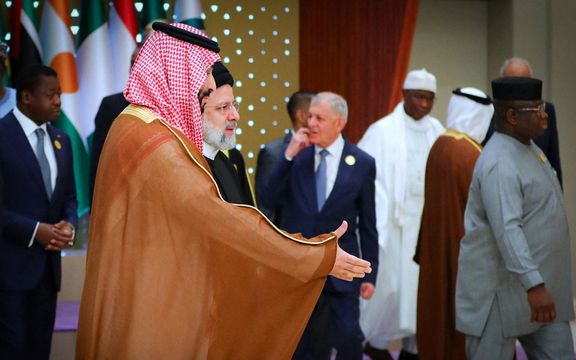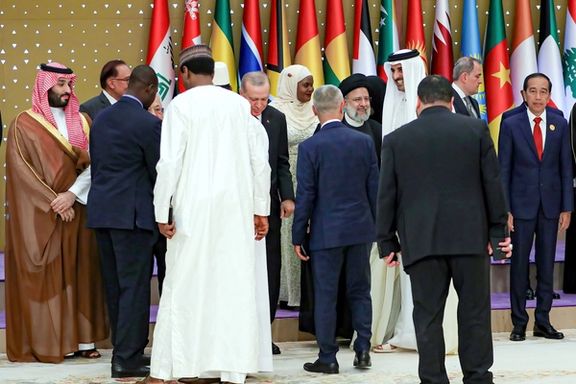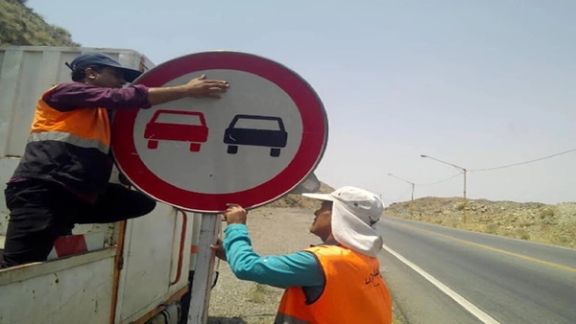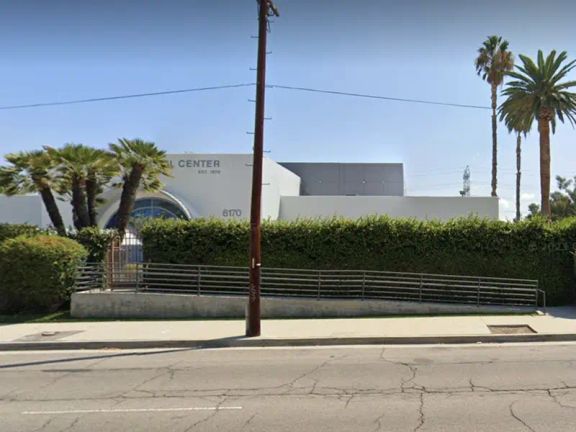Militants Launch Another Drone Attack On A US Base In Iraq

Al-Harir Airbase, located near Erbil and housing US and international forces, was targeted in an armed drone attack, as reported by a security source on Saturday.

Al-Harir Airbase, located near Erbil and housing US and international forces, was targeted in an armed drone attack, as reported by a security source on Saturday.
The assault caused damage to the airport infrastructure, but no human casualties have been reported at this time.
The Islamic Resistance in Iraq, a faction primarily composed of Iran-backed Shiite paramilitary groups, has claimed responsibility for a series of similar drone and rocket attacks since war broke out between Israel and Hamas. In a similar incident, the airbase caught fire late Thursday after being struck by two suicide drones, as confirmed by local authorities.
US and international forces stationed in Iraq and Syria have heightened their alert status following numerous attacks on their bases since the October 7 terror attack on Israel.
Iran's proxies resumed rocket and drone attacks on US bases in Syria and Iraq, breaking more than a year of relative calm.
Responding to the escalating situation, the US military on Thursday conducted strikes in eastern Syria, targeting a weapon storage facility used by Iran's Islamic Revolutionary Guard Corps (IRGC) and affiliated groups.
President Joe Biden emphasized that the strikes were a response to attacks on US troops. He also indicated the possibility of further responses if deemed necessary. However, numerous US threats so far have failed to deter the militant groups supported by Tehran.
Despite accusations, Iran has denied involvement in the attacks. Amir Saeid Iravani, Tehran's ambassador to the United Nations, claimed that separatist groups were reacting to the Israeli assault on Gaza, which has resulted in the death of over 10,800 Palestinians.

Iranian President Ebrahim Raisi on Saturday hailed the Palestinian group Hamas for its war against Israel and urged Islamic countries to launch sanctions against Israel.
"There is no other way but to resist Israel, we kiss the hands of Hamas for its resistance against Israel," Raisi said in his address to a joint Islamic-Arab summit in Riyadh. He also called on Islamic countries to impose oil and goods sanctions on Israel.
The summit called on Saturday for an immediate end to hostilities in Gaza, declaring that Israel is responsible for "crimes" against Palestinians.
Crown Prince Mohammed bin Salman, Saudi Arabia's de facto ruler, gathered Arab and Muslim leaders in Riyadh as the kingdom has sought to exert its influence to press the United States and Israel for an end to fighting in Gaza.
The Iranian regime praised Hamas as soon as news about the October 7 attack emerged and immediately organized street celebration. However, it has refrained from direct involvement in the fighting. However, its Iraqi, Syrian and Yemeni proxy forces have launched more than 40 rocket and drone attacks against American forces in the region, not deterred by a large deployment of US naval forces in the region.
Dozens of leaders including Iran’s Raisi, Turkish President Tayyip Erdogan, Qatar's Emir Sheikh Tamim bin Hamad Al Thani and Syrian President Bashar al-Assad, who was welcomed back into the Arab League earlier this year, attended the meeting.

Prince Mohammed said the kingdom affirms its "condemnation and categorical rejection of this barbaric war against our brothers in Palestine".
"We are facing a humanitarian catastrophe that proves the failure of the Security Council and the international community to put an end to the flagrant Israeli violations of international laws," he said in an address to the summit.
Palestinian President Mahmoud Abbas said Palestinians are facing a "genocidal war" and called on the United States to end Israeli "aggression".
As he headed to Riyadh, Raisi said it was time for action over the conflict rather than talk.
The Middle East has been on edge since Hamas fighters rampaged into Israel on October 7, killing 1,200 people, mostly civilians.
Since then, Israel has escalated its assault on Gaza, where 11,078 people had been killed as of Friday, 40% of them children, according to Hamas officials. It is not possible to independently verify these numbers.
ARAB COUNTRIES DIVIDED
Fighting intensified overnight into Saturday near Gaza City's overcrowded hospitals, Palestinian officials said.
The war has upended traditional Middle East alliances as Riyadh has engaged more closely with Iran, pushed back against US pressure to condemn Hamas and put on hold its plans to normalize ties with Israel.
Raisi's trip to Saudi Arabia is the first by an Iranian head of state since Tehran and Riyadh ended years of hostility under a Chinese-brokered deal in March.
Erdogan called for an international peace conference to find a permanent solution to the conflict between Israel and Palestinians.
"What we need in Gaza is not pauses for a couple of hours, rather we need a permanent ceasefire," Erdogan told the summit.
The kingdom had been scheduled to host two extraordinary summits, the Organization of Islamic Cooperation, and the Arab League, on Saturday and Sunday. The joint summit will replace the two gatherings in light of the "extraordinary" Gaza situation, the Saudi Foreign ministry said.
Hamas called on the summit to take "a historic and decisive decision and move to stop the Zionist aggression immediately".
"We call on Arab and Muslim leaders ... to put pressure on the American administration, which bears direct responsibility in the genocidal war that our people are facing in the Gaza Strip," a statement from the Palestinian militant group said.
Arab foreign ministers were divided as some countries, led by Algeria, called for a complete cut in diplomatic ties with Israel, two delegates told Reuters.
Other Arab countries, which have established diplomatic relations with Israel, pushed back, stressing the need to keep channels open with Netanyahu's government, they said.
With reporting by Reuters

Iran is grappling with an alarming trend of people stealing road signs and safety fixtures on the roads, amounting to up to two million dollars annually.
Reza Akbari, the deputy of the Road and Transportation Organization, revealed the statistics in a statement to the ILNA news agency on Saturday.
Akbari disclosed that a significant portion of the stolen equipment, including safety signs, finds its way to scrapyards, with the possibility of contractors themselves being implicated in the thefts. He highlighted that a concerning number of items are pilfered by low-income individuals, often grappling with addiction.
The issue has been on the radar for some time, as Akbari had previously drawn attention to the rising trend of road equipment theft in Iran. He emphasized the difficulty in imposing penalties on thieves, who belong to impoverished segments of society.
"Such thefts extend beyond the country's roads and are notably higher in cities, particularly Tehran," Akbari asserted.
In addition to the thefts plaguing road infrastructure, recent years have witnessed a surge in reports of power outages and disruptions attributed to the theft of power cables. Observers link the disturbing trend to the increasing spread of poverty.
The situation has escalated with reports of thefts extending to crucial items like water pipes, exacerbating crises such as lack of water.
Official figures from the interior ministry indicate that approximately 60 percent of Iran's 84 million population live below the relative poverty line. Between 20 to 30 million Iranians find themselves in a state of "absolute poverty."

In a foreboding sign for Iranian politics, the Interior Ministry has disqualified more than a dozen sitting members of parliament from running in the March elections.
The Interior Ministry has conducted the initial screening, and additional candidates, including current members of parliament, are anticipated to face disqualification by the conservative Guardian Council, operating under the direct supervision of Supreme Leader Ali Khamenei.
For months, there has been speculation among politicians and commentators about whether the March elections would be more competitive, after two scandalous elections in 2020 and 2021, when most non-hardliner candidates were barred in a highly questionable vetting process.
Three of the five MPs are lawmakers from Tabriz including outspoken Ahmad Alirezabeigi. He revealed a significant case of financial corruption involving over one hundred members of parliament who were purportedly bribed by a former industry minister to avoid impeachment. The alleged bribe involved hundreds of SUVs gifted to dozens of lawmakers.
According to Shargh daily, the other lawmakers from Tabriz who has been disqualified by the Interior Ministry are Massoud Pezershkian, a staunch reformist critic of the Raisi administration, and Alireza Monadi. During the past four years, Pezeshkian has harshly criticized the government for the large exodus of Iranian medical staff to other countries to evade hardships brought about the current economic crisis blamed on the regime’s adversarial foreign policy.

Pezeshkian had also criticized the government for the shortage of medicine, rising prices and other matters on various occasions. Meanwhile, as a reformist lawmaker, Pezeshkian also criticized his colleagues in the parliament (Majles) for chanting slogans such as death to other countries, instead of trying to correct the state of affairs in Iran. "We need to tolerate others and work and collaborate with the world," he said adding that "we need to create solidarity inside Iran." He has also called for reforms in Iran and demanded the replacement of Raisi's inefficient cabinet ministers.
Another outspoken lawmaker who has been barred from running for the next parliament is Gholamreza Nouri Ghezeljeh who is very well known for his criticism of the Raisi administration's economic policies and the failure to control the inflation rate in Iran. Ghezelje is also a staunch critic of the government's restrictive cultural policies including the bill to restrict Iranian's access to social media.
In one of his latest speeches at the Majles he lashed out at the government for attempting to invade Iranians' privacy through a plan officially introduced as a bill to "monitor the citizens' lifestyle." While the Majles was approving the bill last Tuesday, Ghezeljeh pointed out that such a monitoring is against Article 25 of the Iranian Constitution which bars the government from spying on citizens’ private lives. He warned that any study of lifestyle should not include the private lives of citizens and invasion of their privacy.
Another outspoken MP also barred from re-election is Jalil Rahimi Jahanabadi, a member of parliament's National Security and Foreign Relations Committee. He told the press that he will take his complain about his disqualification to God almighty.
An advocate of openness to international community, Jahanabadi has continuously supported the Idea of Iran joining international conventions such as the FATF conventions against money laundering and financing of terrorism. Last month, while Iran's radicals and hardliners were once again blamed for the impasse in the country's economy, politics and foreign policy, Jahanabadi called for a powerful reformist minority in the Majles to counterbalance hardliners. He said: "We need to harness and control the radicals. A powerful reformist minority can have a good impact on the Majles."
Jahanabadi is also known for a comment in August in which he acknowledged that the consequences of last year's protests continue to impact the nation's psychology.
The disqualified MPs may appeal the Interior Ministry's verdict, however, the totalitarian government in Tehran, needs to have some of its critics punished by disqualification as a lesson for the new lawmakers who win the next Majles.

In an incident in Tarzana, Los Angeles, a 54-year-old woman, apparently of Middle Eastern descent, named Tikvah Mottahedeh was arrested on hate crime charges this week.
She allegedly rammed her vehicle into the gates of the Eretz Synagogue and Cultural Center on Wilbur Avenue, not once but twice, just after midnight on Thursday.
The Los Angeles Police Department took Mottahedeh into custody for vandalism as a hate crime on a house of worship. The synagogue, which became the target of the attack, suffered damage to its gates.
Investigations revealed that Mottahedeh had an Instagram account under her name, featuring posts in Persian, Hebrew, and English. The account included critical writings against the government of Israel and the policies of the Iranian government. Similarly, her Meta (Facebook) account indicated that she is an Iranian Jewish woman.
However, Iran International cannot confirm whether the social media accounts truly belong to the assailant. The United States has detained her on a $25,000 bail but further details of the incident have not been disclosed.
The incident follows a series of anti-Jewish attacks in different countries, notably after Hamas's attack on Israel on October 7, leading to conflict in the Gaza Strip.
German Chancellor Olaf Scholz said in reaction on Thursday that he was "ashamed and outraged" at a recent wave of antisemitic incidents in Germany, warning Berlin would not tolerate such anti-Jewish hatred.
Metropolitan Police Commissioner Mark Rowley had earlier called for stringent laws to combat extremism, especially in the aftermath of the Hamas-Israel conflict, highlighting a "gap" in dealing with extremism within the existing legal framework.

Two people have died and one is missing in recent floods, according to the Iranian Red Crescent Society, amid more than decade-long drought in the country.
The head of the Rescue and Relief organization provided information regarding flood operations from November 2nd to 11th.
Babak Mahmoudi reported that more than 2,600 people in 13 different provinces in Iran were affected by flooding and received relief.
Furthermore, two people were reported dead in Golestan province, north of Iran, and a 40-year-old woman had gone missing in Semnan province.
The Red Crescent official announced they provided relief to 2,603 people, relocated 68 people to safe areas, and provided emergency accommodation to 270 individuals.
A recent report by World Weather Attribution stated that the drought which lasted 36 months from July 2020 to June 2023 in Iran, Iraq, and Syria, was “the second worst in the observed record.” However, Iran has been increasingly facing less precipitation since the early 2000s and its underground water resources have significantly declined.
According to the study, war and post-war transition, rapid urbanization in the face of limited technical capacity, and regional instability all contributed to the negative outcomes of the drought in the region. At the time of the report, the Ukraine war significantly affected food and energy prices. There is a possibility that the situation will deteriorate due to the ongoing Gaza war.
The Iranian regime has come under harsh criticism for its mismanagement of the environment, especially its water resources, as well as the treatment of activists in this field. Recent years have seen a number of Iranian environmentalists convicted of espionage for the US and UK governments and sentenced to prison.